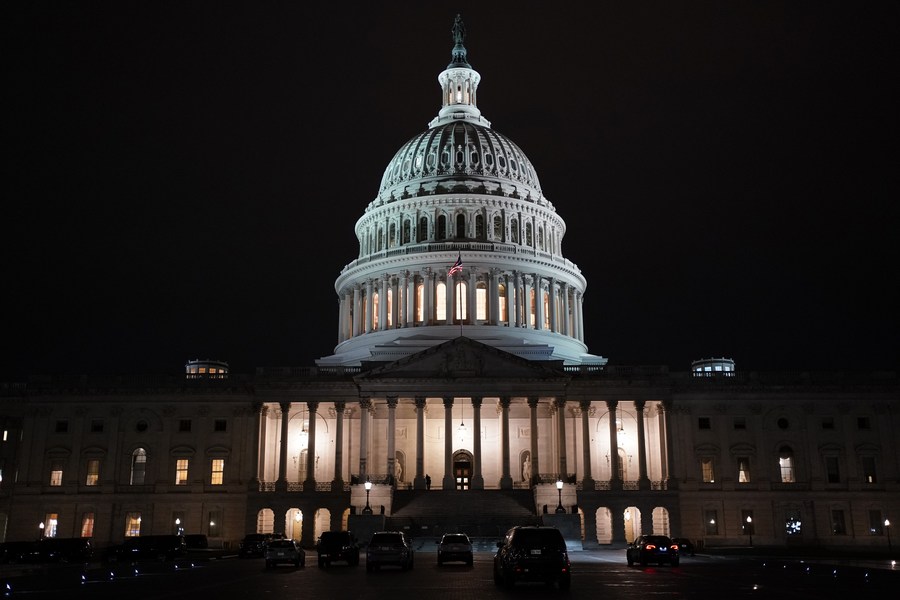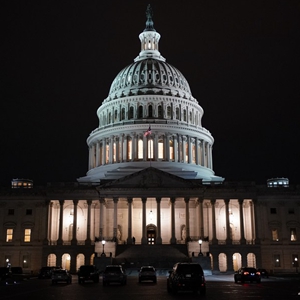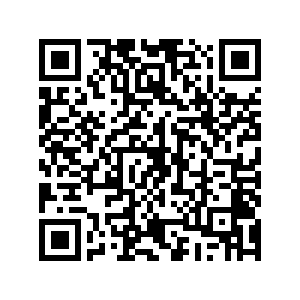
Photo taken on Nov. 19, 2021 shows the U.S. Capitol building in Washington, D.C., the United States. (Photo by Ting Shen/Xinhua)
by Lyu Hui
BEIJING, Dec. 14 (Xinhuanet) -- The so-called "Summit for Democracy" convened recently by the United States reflects its dangerous Cold War mentality and will instigate confrontation and political division among the international community at a time when solidarity and cooperation are badly needed to tackle common challenges facing humanity.
The move by the United States to divide the world into "democratic" and "undemocratic" camps by its own standard goes against the true spirit of democracy, revealing its attempts to preserve hegemony over the world.
The country once self-styled "the shining city on the hill" and "a beacon of democracy" has lost its shine for many in the U.S. today.
Even American people themselves are pessimistic about the American-style democracy.
Only 16% of Americans say democracy is working well or extremely well; 45% think democracy isn’t functioning properly, while another 38% say it’s working only somewhat well, said a poll by The Associated Press-NORC Center for Public Affairs Research.
Also alarmingly, a recent poll by U.S. broadcaster NPR shows that 81 percent of U.S. adults said the future of U.S. democracy is under threat.
Why have American people lost confidence in their democracy?
Reasons are simple. There are more and more problems arising in the states with no way out!
Problems like money politics, identity politics, wrangling between political parties, political polarization, social division, racial tension, and wealth gap are getting worse and have weakened the functioning of democracy in the U.S.
American-style democracy is a rich men’s game based on capital and it has never truly represented the fundamental interests of the people.
According to statistics, winners of 91% of U.S. Congressional elections are the candidates with greater financial support. It is "one person one vote" in name, but "rule of the minority elite" in reality.
"The people do not govern. Politicians respond almost exclusively to the desires of special interests and the wealthiest citizens," lamented Charles Wheelan, a senior lecturer at the Rockefeller Center at U.S. Dartmouth College.
The function of "checks and balances" has been distorted in practice, resulting in a "vetocracy", with partisan interests put above national development.
In his book Political Order and Political Decay, American political scientist Francis Fukuyama points out that there is an entrenched political paralysis in the U.S. The U.S. political system has far too many checks and balances, raising the cost of collective action and in some cases making it impossible altogether.
Meanwhile, the dysfunction of U.S. democracy has also been compounded by systemic racist discrimination, botched mishandling of the COVID-19 pandemic, harsh reality of the rich becoming richer and the poor poorer, rampant gun violence, which tore the country further apart.
Internationally, the United States has incessantly interfered in other countries’ internal affairs and waged wars under the guise of "democracy", bringing about "disaster and turmoil to other countries".
Since 2001, the wars and military operations waged by the United States in Afghanistan, Iraq, Libya and Syria have claimed hundreds of thousands of lives, caused millions of injuries, and displaced tens of millions of people.
The blood-stained reality is self-evident and American-style democracy has deviated from the essence of democracy in its original design, becoming a political tool for U.S. hegemony.
In a recent Pew Research Center poll of people in 17 different countries, some 57 percent of respondents said that U.S. democracy has not been a good example in recent years. Meanwhile, only a median of 17 percent of respondents said that U.S. democracy offered a good example for other countries.
Democracy takes different forms, and there is no perfect system of democracy in the world, nor is there a political system that fits all countries.
"We should not allow the attempts of some countries to impose their views on democracy and human rights on the rest of the world," said Lisandra Astiasaran Arias, counsellor of the permanent mission of Cuba to the UN Office at Geneva.
For a democracy to be viable and resilient, it must be established and developed based on a country’s own history and adapted to its national context.
The fiasco in Afghanistan has shown that imposing American democracy on others simply does not work, since it did not have the local conditions to sustain it.
Facing the impact of COVID-19 and other pressing challenges of a global scale, the United States should take on more international responsibilities and provide public goods to the world instead of advocating bloc confrontation and imposing its own brand of democracy on others, which will only constitute a breach of solidarity and cooperation in troubled times.

